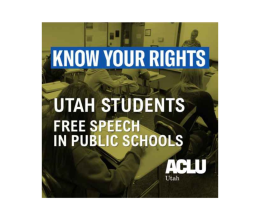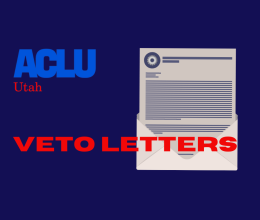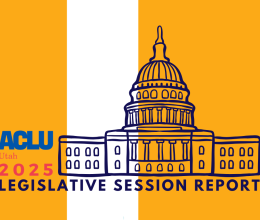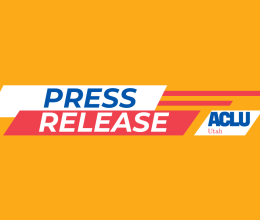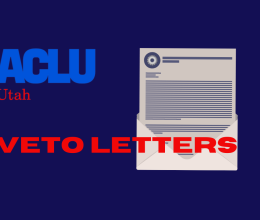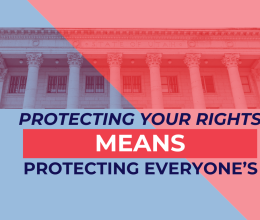ACLU of Utah Comments on Utah State Board of Education Draft Gender Identity Guidance for Utah Public Education
In general, the ACLU of Utah supports the policies outlined in the Draft Gender Identity Guidance for Utah Public Education because they aim to create a safe and welcoming educational environment where all students are treated with respect and allowed to learn.
We have heard directly from students and their families who have experienced harm based on their sexual orientation or gender identity. Any policy adopted should correctly affirm the right of all young people to belong and learn in Utah’s public schools.
We believe that any guidance adopted by the Utah State Board of Education should follow the evolving medical evidence and legal standards around gender identity. The reality is that equality is not up for debate. Last year, the U.S. Supreme Court issued a clear decision federal law also protects LGTBQ+ individuals from employment discrimination on the basis of their sexual orientation or gender identity. Since then, the U.S. Department of Justice has interpreted this decision as applicable to public schools through Title IX of the nation’s civil rights laws.
We believe that providing accurate and updated guidance on gender identity policies to Utah’s educational community is a much-needed step to ensure that LGBTQ+ children feel welcome in public schools. Students and their families should not have to go to court to have their fundamental rights recognized. This type of harmful and costly litigation is often damaging to a school district’s reputation and can last many years, resulting in a significant waste of time, resources, and taxpayer dollars. Summarized below are several examples of discriminatory actions by school districts that could have been prevented with better legal guidance to local school officials
In the 1990s, the Salt Lake City Board of Education shut down all extracurricular activities and clubs in the district to prevent a gay-straight student alliance from meeting at East High School. Their decision generated national headlines and resulted in two lawsuits that took five years to resolve before the school board reversed its earlier decision and allowed the clubs to meet on campus.
In 2014, school officials in Heber City decided to digitally alter yearbook photos of some female students to add sleeves, increase necklines and erase a tattoo. Only photos of female students were airbrushed, despite photos of shirtless male students being included in the same yearbook. This incident generated international media coverage of the Wasatch County School District, whose spokesperson later apologized for the inconsistent policy and vowed to revise them.
When Gavin Grimm, a transgender high school student in North Carolina, learned his school required him to use a separate restroom that no other student was required to use, he sued his school board in 2014 for excluding him simply because he is transgender. He claimed the board’s policy discriminated against him in violation of the Equal Protection Clause and Title IX of the U.S. Education Amendments of 1972, a federal law prohibiting sex discrimination by schools. After four years of litigation, the U.S. District Court for the Eastern District of Virginia ruled in favor of Grimm on all his claims. The U.S. Court of Appeals for the Fourth Circuit affirmed the ruling in August 2020, and last year the U.S. Supreme Court declined to hear the school board’s appeal. The school district ultimately paid Grimm’s lawyers $1.3 million dollars in attorney’s fees and other costs related to the case.
We urge the Utah State Board of Education to adopt guidance that ensures Utah public schools are welcoming and safe for all students, especially students who are transgender and/or gender nonconforming. In keeping with governing federal laws and policies, the policies adopted by the board should be a positive step towards Utah’s public schools treating all students with respect and dignity and fulfilling the state’s obligation to provide them with a public education on equal terms.


